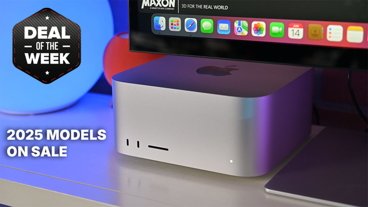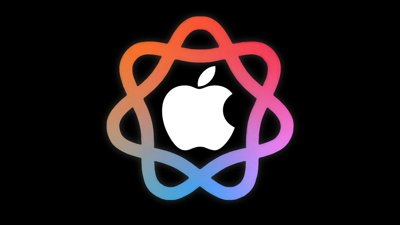Even as many home buyers recently suddenly became shy about buying Apple computers in mid-year, small businesses just as quickly took to Macs — to the point where Apple's market share in that field grew three times larger almost overnight.
The gain boosted Apple's share of the field from a modest 1.9 percent during the earlier season to a significant 5.6 percent in summer. It was enough to not only give Apple a new level of influence but also to carry the company through a tough period: where Mac shipments to regular home buyers suddenly cooled in growth from 53.6 percent quarter-to-quarter from the spring to just 9.1 percent in the summer, the small business spike represented nearly all of Apple's Mac growth at about 97 percent of systems leaving warehouses and shelves.
Such a rapid move is odd for Apple, which has often fought to make any headway in a normally Windows-dominated crowd; it's inexplicable enough that Wolf himself doesn't have a simplified answer.
"After years when the Mac's share of this market barely budged, the increase was so abrupt that there are no obvious explanations for it," he says.
The answer offered is instead a complex one based on Apple's long-term efforts. The cost-effectiveness of Mac OS X Server, Xserves, the Xsan storage system and Apple Remote Desktop all established a foundation but have themselves never made much of an impact.
It's rather a combination of software and retail that has given Apple the sudden rush of customers, the Needham researcher claims. With Boot Camp now a permanent feature as of Leopard and supported by the increasing use of Parallels Desktop and VMware Fusion — both of which can now run Mac OS X virtual machines as well as Windows and Linux — smaller companies can run a second operating system and ease the pain of converting some or all of their operations to the Mac platform.
Retail strategies are also seen helping the Mac's inroads. A large number of Apple retail shops now specifically include small business courses and also set aside greater resources as a whole just to these customers. That relatively new devotion to business has "begun to bear fruit," Wolf notes.
He also observes that Apple's sudden drop in overall growth during the summer, which also included education, is potentially just a very temporary glitch and hid an imminent rush.
While again the drop was mysterious enough to have no clear explanation, Wolf believes the flattened growth in Mac numbers may well have stemmed from customers waiting on expected new MacBooks that didn't ultimately ship until mid-October. This had a spring-loaded effect with sales in October compensating for the earlier drop.
Wolf further suggests the dip may have come from a sudden "fad" for netbooks that particularly affected students returning to college as well as concerns over then-high gas prices and recessionary fears.
 Aidan Malley
Aidan Malley





-m.jpg)






 Charles Martin
Charles Martin
 Marko Zivkovic
Marko Zivkovic

 Malcolm Owen
Malcolm Owen
 William Gallagher
William Gallagher

 Christine McKee
Christine McKee



-m.jpg)




42 Comments
While again the drop was mysterious enough to have no clear explanation, Wolf believes the flattened growth in Mac numbers may well have stemmed from customers waiting on expected new MacBooks that didn't ultimately ship until mid-October.
Nothing mysterious about this! Sales drop before an announcement as regular as clockwork, especially an announcement as overdue as the macbooks were.
Guess that means small business owners are three times smarter than big corp IT chiefs.
Guess that means small business owners are three times smarter than big corp IT chiefs.
Nothing surprising or mysterious about that either
It's been a bad year for the resident Apple bashers in this forum. All the predictions of abject failure because of (insert favorite deal-breaking, must-have, no-go missing feature, port, or function) just haven't panned out for them. Sad, quite sad.
It's because small business owners have families, and their families use Macs at home and school, so they can see that Macs are good.
Big Corporate IT chiefs, on the other hand, have no families, and never even get outside. It's no wonder they're married to Windows.